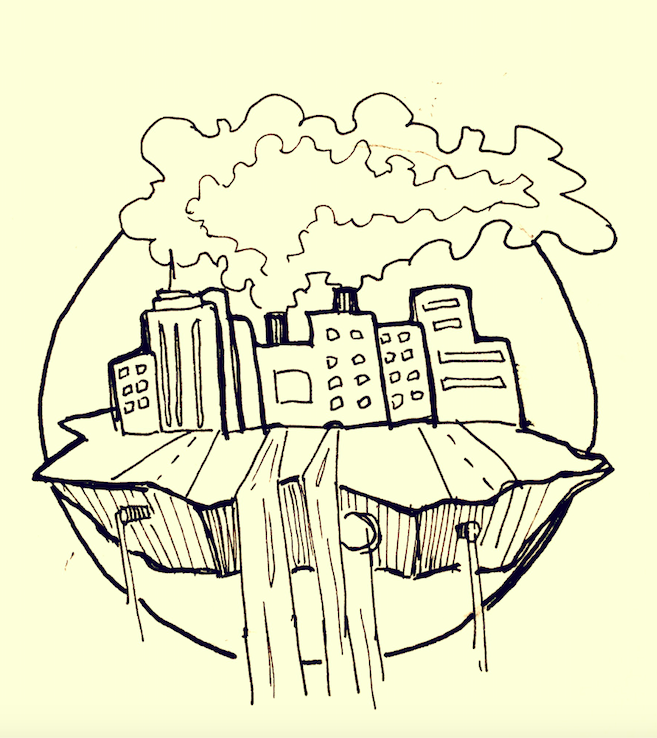Smog Police to the Rescue
February 17, 2017
In Beijing, the capital of China, air pollution is still a prominent issue, giving rise to a multitude of problems such as blocked lungs and impaired visibility. But as Chinese citizens spent the first seven days of 2017 under a thick layer of smog, the government unveiled a new approach to combat this pervasive problem: smog police.
This environmental police force will primarily serve to more harshly enforce laws preventing pollution. Beijing mayor Cai Qi, who spearheaded the project, blames lax supervision and law enforcement for the continued deterioration in air quality since China “declared war” on pollution in 2014. Recently, the smog has begun to pose deadly hazards for the people of Beijing, especially during the winter.
At first glance, air pollution may seem like a merely superficial issue. In reality, however, unclean air threatens Chinese lives every day. The government often issues red alerts, advising citizens to stay inside due to the significant amounts of smog. On roads and highways, drivers often cannot see ahead of them. Countless businesses and schools close down, flights are cancelled, and driving is prohibited when these red alerts occur.
Still, many fail to realize the severity of the smog in China. As Anthony Lan ‘20 states, “I never realized smog was life-threatening. I think Americans and people throughout the world need to open their eyes to the current problem. Many people my age do not realize how severe this issue is or the fact that if we do not begin to reduce our waste, China’s current state of pollution is our future.”
Most pollution emanates from the burning of fossil fuels, open barbecues, garbage incinerators, and other wastes such as wood and biomass. According to Cai Qi, the new police force will crack down on these polluters. Coal burning factories also contribute significantly to smog, but China aims to close its last one this year.
This year, the Chinese also aim to remove 300,000 heavily polluting vehicles and implement a budget of $2.5 trillion yen ($361 billion U.S. dollars) on renewable power generators. In addition, the Chinese are installing air purifiers in schools, specifically kindergartens, and preventing outdoor activities for young children.
Eric Tung ‘19 believes that “China’s new initiative has hope. If [the Chinese] can keep up their plan and really enforce the laws they recently made, so much pollution will be reduced. China serves as an example for the rest of the world and alerts people about the eventual harms of pollution. Hopefully people can understand now how prominent this problem is.”
Many citizens fail to realize the severity and urgency of global pollution, but initiatives like China’s can help bring awareness to the issue and hopefully inspire other countries to take action.
As Beijing tests out its new police force, other large cities across the world can witness the innovative efforts necessary to rectify the effects of severe pollution. After multiple attempts to lessen the smog in China, hopefully this one succeeds.

